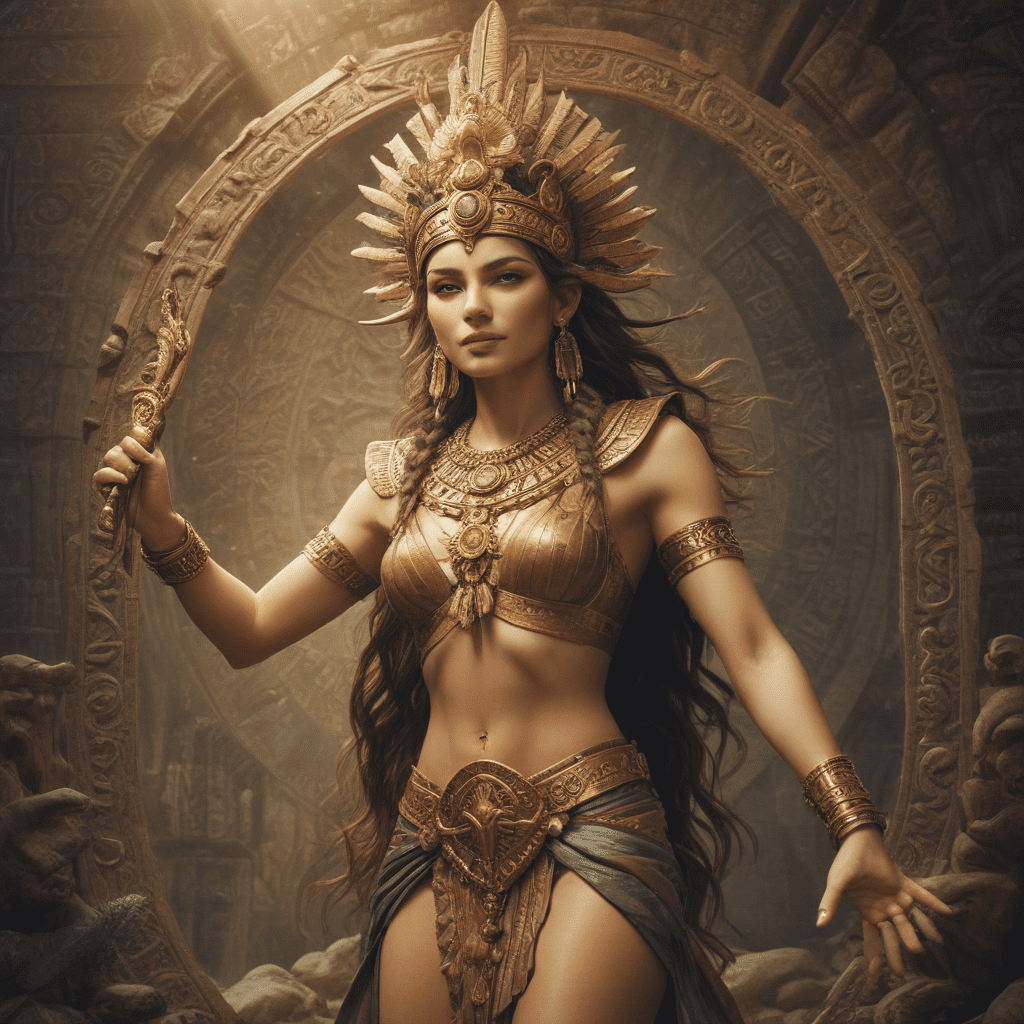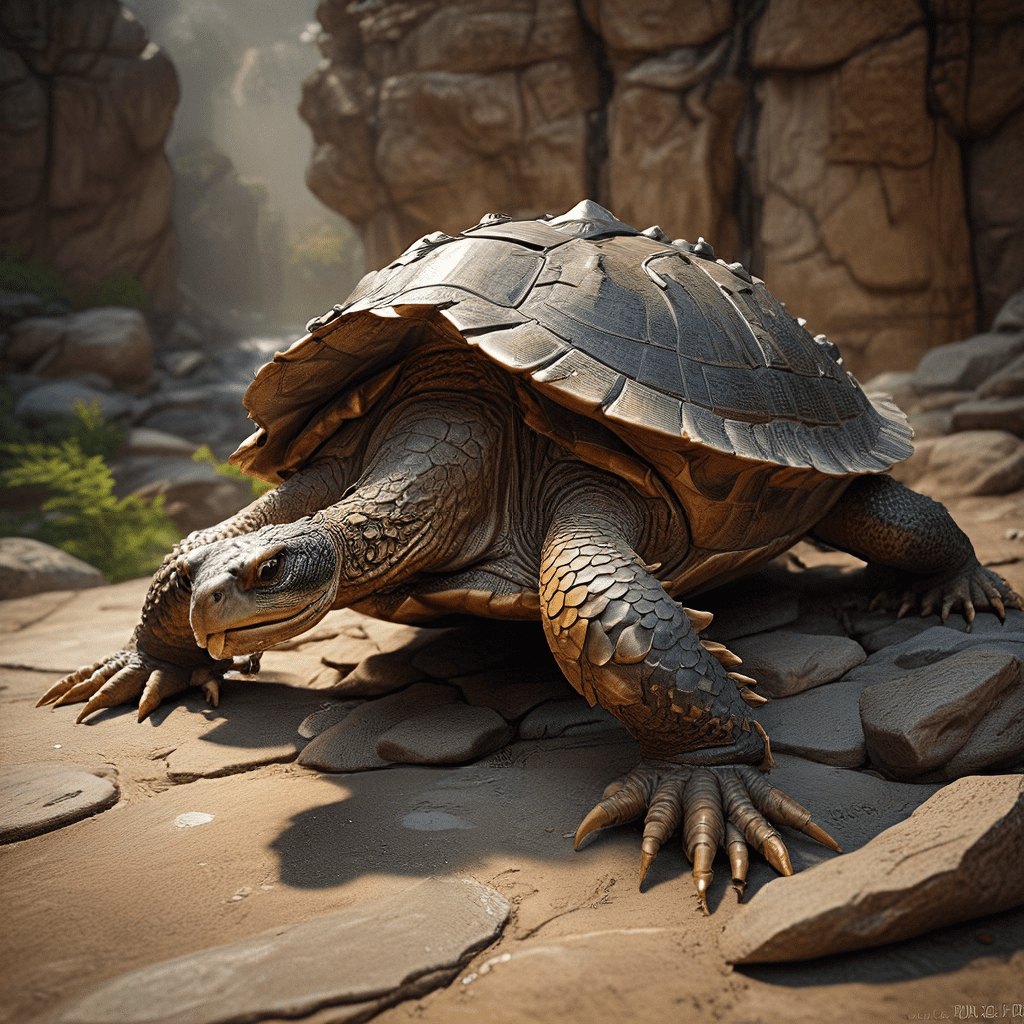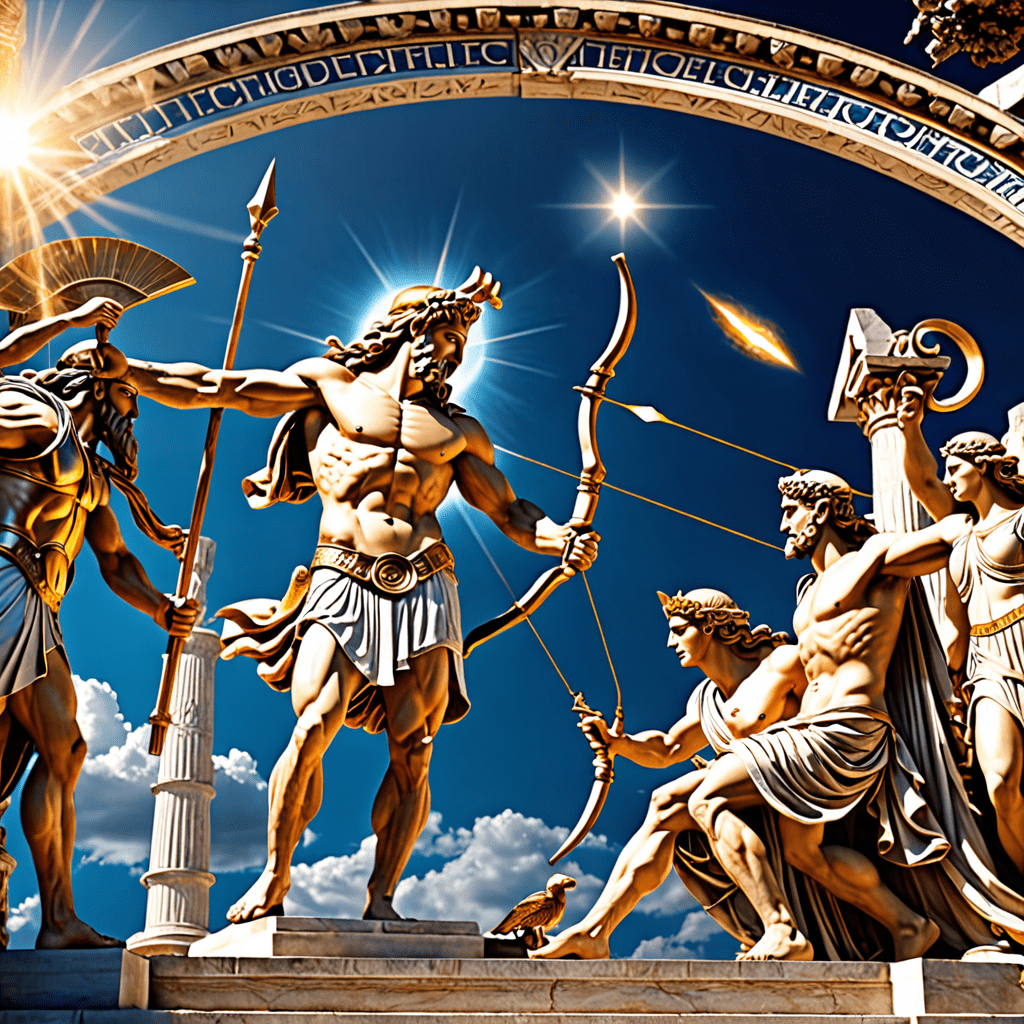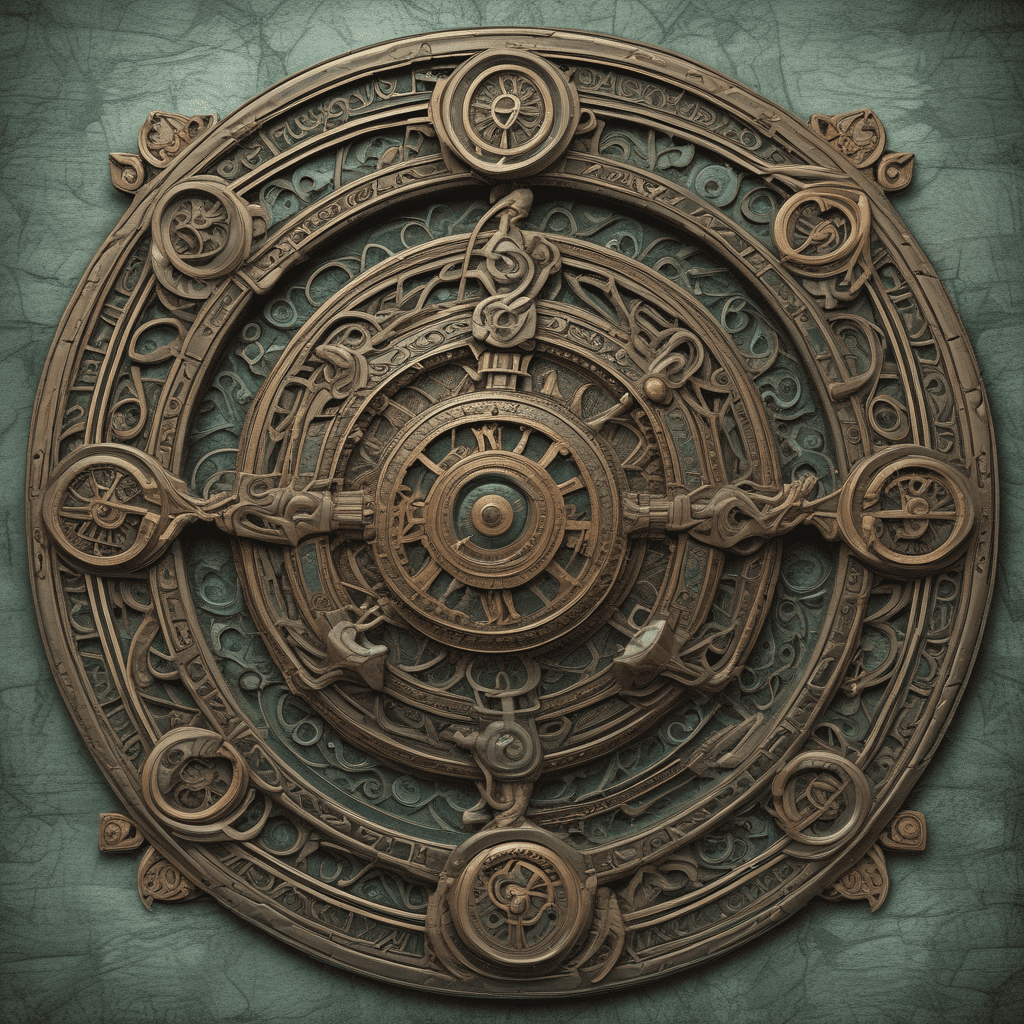1. Introduction
a. Overview of Enki and Mesopotamian Mythology
Enki, also known as Ea, is a prominent deity in Mesopotamian mythology, revered as the god of water, creation, wisdom, and magic. He played a pivotal role in shaping the world, including the creation of humankind, and was considered a benevolent figure who guided and protected humanity throughout its early history. Mesopotamian mythology, encompassing the rich cultural and religious beliefs of ancient Mesopotamia, provides valuable insights into the ancient Mesopotamians' understanding of the cosmos, their relationship with the divine, and their interpretations of human origins and existence.
b. The Importance of Creation Myths in Understanding Human Origins and Divine Intervention
Creation myths are fundamental narratives in various cultures worldwide, offering explanations for the origin of humanity, the universe, and the natural world. Exploring the creation myth of Enki and the Mesopotamians allows us to delve into their understanding of human existence within the divine order. These myths shed light on the Mesopotamian concept of divine intervention, revealing how they perceived gods and goddesses as active participants in shaping human destiny and influencing their daily lives.
2. Enki: The God of Creation
a. Role and Responsibilities in the Mesopotamian Pantheon
Enki held a prominent position within the Mesopotamian pantheon, second only to the supreme god Anu. He was revered as the creator of humankind, the provider of knowledge and skills, and the guardian of civilization. Enki's association with water symbolized his life-giving powers, and his wisdom made him a respected counselor to the gods and a guide to humans.
b. Attributes and Symbolism Associated with Enki
Enki's attributes and symbolism reflect his multifaceted nature. His association with water is evident through his depiction with flowing streams of water, fish, and aquatic creatures. He is often depicted wearing a horned crown and holding a rod, symbolizing his authority and power. The number eight holds significance, representing his role as the eighth deity in the Mesopotamian pantheon.
c. Significance of Water and Wisdom in Enki's Creation Narrative
Water plays a crucial role in Enki's creation narrative. In Mesopotamian mythology, water was considered the primordial element from which life emerged, and Enki's association with water emphasizes his role as the source of creation. Wisdom is another key attribute of Enki, essential for shaping and guiding the newly created humans. His wisdom embodies the creative intelligence that brought forth life and continues to guide human progress.
3. The Mud and Spit Creation: Enki and Ninki Shaping Humanity
a. Divine Collaboration and the Birth of Humankind from Clay
The Mesopotamian creation myth involving Enki and Ninki (also known as Ninhursag) details the shaping of humankind from clay. The myth describes Enki and Ninki working together, mixing clay with their own divine essence to form the first humans. This collaborative act signifies the joint responsibility and care that the gods invested in the creation of humanity.
b. The Purpose and Role of Humans in the Divine Order
The creation of humans served a specific purpose within the divine order. Humans were tasked with tending the land, cultivating crops, and building cities, contributing to the flourishing and development of the world. This responsibility placed upon humans emphasizes their importance within the Mesopotamian worldview, where they were integral participants in maintaining cosmic harmony.
c. Variations and Parallels Across Mesopotamian Creation Myths
While the Enki and Ninki creation myth is prominent, other Mesopotamian creation myths exist, offering variations in the details but sharing core elements. These variations reflect the diverse traditions within Mesopotamian culture, but the underlying theme of divine creation and human purpose remains consistent. Notably, parallels can be drawn with other ancient Near Eastern creation myths, highlighting shared cultural and religious influences across the region.
6. The Relationship Between Enki and Humans: Between Dependence and Rebellion
a. Humans as Subjects and Beneficiaries of Enki's Creation and Care
Humans existed in a state of dependence on Enki, recognizing him as their creator and provider. Enki bestowed upon them knowledge and skills essential for survival and advancement. He guided them in agriculture, craftsmanship, and the establishment of social structures. This dependence fostered a sense of gratitude and reverence towards Enki, who was viewed as a benevolent protector and benefactor.
b. Instances of Human Disobedience and Defiance of Enki's Will
Despite their dependence, instances of human disobedience and defiance towards Enki's will are also documented in Mesopotamian myths. The Epic of Gilgamesh, for example, narrates the story of Enkidu, a wild man created by Enki, who initially challenges the established order and clashes with humans. This rebellious nature highlights the inherent complexities within the human-divine relationship, where humans, despite their dependence, also possessed the capacity for independent thought and action.
c. The Complexities and Contradictions within the Human-Divine Relationship
The relationship between Enki and humans is characterized by both dependence and defiance, reflecting the inherent complexities of human nature. Humans acknowledged their dependence on Enki for their creation and continued existence, yet they also possessed a rebellious spirit that could challenge divine authority. These contradictions demonstrate the dynamic and multifaceted nature of the human-divine relationship in Mesopotamian mythology.
7. Enki and the Environment: Creator, Provider, and Protector
a. Enki as the Source of Life and Abundance
Enki's association with water cemented his role as the source of life and abundance. Rivers, canals, and marshlands were considered sacred spaces under his protection, representing the life-giving essence that sustained the Mesopotamian civilization. Enki ensured the fertility of the land, providing for the agricultural prosperity that formed the backbone of their society.
b. Enki's Role in Maintaining Cosmic Harmony
Enki's responsibility extended beyond the physical world. He played a crucial role in maintaining cosmic harmony, ensuring the balance between the divine and human realms. He acted as an intermediary between humans and the gods, relaying divine decrees and ensuring that humans fulfilled their obligations to the divine order.
c. Enki's Protection against Chaos and Calamities
Enki's protective role extended to safeguarding humanity against chaos and natural calamities. He intervened during times of drought, flood, and disease, offering guidance and assistance to alleviate suffering. His efforts to preserve order and protect humanity solidified his position as a benevolent and compassionate deity.
8. The Legacy and Interpretation of Enki's Role in Mesopotamian Mythology
a. Significance for Understanding Mesopotamian Cosmology
Enki's role in Mesopotamian mythology provides valuable insights into their understanding of the cosmos and their place within it. His association with creation, wisdom, and water reveals their perception of the world as an interconnected system governed by divine forces. The human-divine relationship, as depicted through Enki, highlights the importance of both dependence on and interaction with the divine in maintaining cosmic harmony.
b. The Concept of Human-Divine Interaction in Mesopotamian Culture
Enki's narrative serves as a testament to the Mesopotamians' belief in the active involvement of the gods in human affairs. They viewed the gods not as distant observers but as active participants in shaping human destiny. This concept of human-divine interaction permeated Mesopotamian culture, influencing their religious practices, social structures, and understanding of the world around them.
c. Enki's Influence on Other Mythological Traditions and Literary Works
Enki's influence extends beyond Mesopotamian mythology, leaving traces in other ancient Near Eastern mythologies and literary works. Parallels can be drawn with figures like the Egyptian god Ptah and the Greek god Prometheus, who share similar roles as creator deities and bringers of civilization. Enki's legacy continues to inspire and inform our understanding of creation myths, human-divine relationships, and the role of gods in shaping human destiny across various cultures and time periods.
9. Conclusion
Enki's role in Mesopotamian mythology sheds light on their understanding of creation, human origins, and the divine order. His multifaceted nature encompasses the roles of creator, provider, protector, and mediator, highlighting the complex relationship between humans and the divine. Enki's legacy continues to resonate, offering insights into ancient Mesopotamian beliefs and influencing our understanding of mythology, human-divine interaction, and the search for meaning in the universe.
10. Frequently Asked Questions (FAQ)
What are some of Enki's most famous myths?
- The Atrahasis Epic: This myth details the Mesopotamian Flood story, where Enki warns humanity of the impending flood and instructs them to build an ark for survival.
- The Descent of Inanna: Enki plays a crucial role in assisting Inanna, the goddess of love and war, during her descent into the underworld.
- Enki and the World Order: This myth describes Enki's establishment of cosmic order, assigning roles to the gods and shaping the natural world.
What are some of Enki's symbols and attributes?
- Water: Enki is often depicted with flowing streams of water, fish, and aquatic creatures, symbolizing his life-giving powers.
- The number eight: Enki's position as the eighth deity in the Mesopotamian pantheon is reflected in the number eight, which holds significance in Mesopotamian culture.
- The beard: Enki is typically depicted with a long beard, symbolizing wisdom, authority, and maturity.
How did Enki influence other cultures and mythologies?
Enki's influence can be seen in other ancient Near Eastern mythologies, where deities with similar roles and attributes exist. Parallels can be drawn with figures like the Egyptian god Ptah and the Greek god Prometheus, who share characteristics as creator deities and bringers of civilization.
How is Enki viewed in modern times?
Enki continues to be a source of fascination and inspiration in modern times. His role in Mesopotamian mythology provides insights into ancient beliefs and values, and his embodiment of wisdom, creativity, and compassion resonates with contemporary audiences.
Disclaimer
This is a comprehensive overview of Enki's role in Mesopotamian mythology



